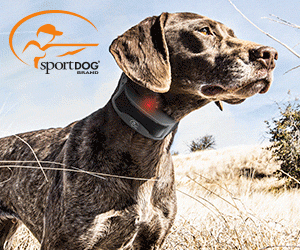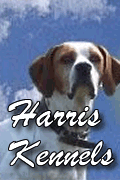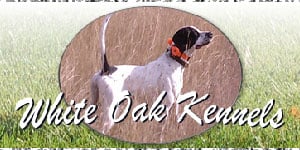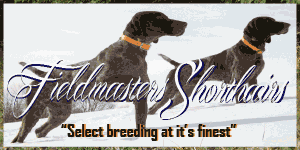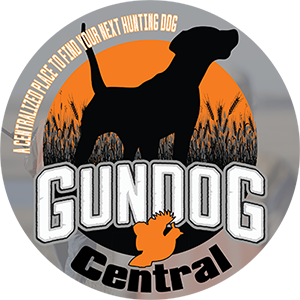Building the Foundation at Any Age
A similar issue can arise with us putting ourselves in this position. Our dog can have a great deal more training than the dog described above, but, we still unintentionally overlook some important elements that our dog should know. That is what happened to me with my own dog, way back years ago.

Learning Along the Way
Rolen was a non-registered chocolate female that I got from my cousins for $100. Cheap with no papers, but an extremely smart gal, just what a brand new trainer like myself needed. We had a great bond and became best friends, and as we worked together, it seemed that she taught me just as much about training as I taught her.
I knew the basics of what she was supposed to do, basically just swim out and get my ducks from the water, and, along with steadiness, that is all I taught her. But there was so much that I wasn’t aware of that I needed to be teaching her. And most of it I learned along the way, as she showed me where I needed to focus her training on.
After we had spent close to two years working together, I felt like she was in top shape for retrieving. I had her steady and coming to heel on command. She had a ton of energy going out for the bumpers.She was good on both land and water retrieves. I thought we were where we needed to be. Then she showed me the first skill I had overlooked.
This was back in the very early days of the internet, back in the dial up times. There was not the abundance of information to be studied like there is today. So I was learning a lot of this on my own along the way. Being brand new to training, I had no idea what force fetch was. And after each retrieve, Rolen would drop the bumper at my feet, and I saw nothing wrong with that. “I could always just pick the bird up, what does it matter?” I thought to myself.
Then, one day at the pond, she showed me why it mattered. I threw a long retrieve for her, and she went full speed to get it, just like she did each time. But, on the way back, while she was still in the water, and about six feet from the bank, she let go of it and came back to me with no bumper. Being taught to drop it at my feet, in her mind, she had just dropped it like normal. I knew this needed to be corrected, but didn’t know what to do; and with no internet resources, I was lost. Eventually, I found someone that could teach both Rolen and myself about force fetch. And, although she was about two years old, she caught on very fast. Before I knew it, she was delivering to hand each and every time. This showed me that even if dogs that are a little older, they are still able to learn new skills, just like younger ones.

Specific To Hunt Setup
All of our training came from her sitting on the ground next to me. This carried over to our first couple of hunts, which were also from the dry ground, helping her to feel comfortable and perform superbly. I even have the first bird she ever retrieved, a Redhead drake she retrieved from this setup, mounted on my wall. Things were going great on our hunts and I was extremely proud of her.
Then came the first hunt from a tree platform, something I had not trained her for at all. She was good from dry ground, she should be just fine on the stand too,right? Wrong! Looking back, this was a foolish thought. It was a big change from our previous hunts and training, and she didn’t like it one bit.She fought me hard against getting on the stand; it was a losing battle for me. The whole hunt was pretty much a bust - lesson learned.

The next day I started working her on the platform in my yard, but I started out with it low, only about two inches above the ground. I got her somewhat comfortable with it, then threw short marks for her. She did decently with it. I ended that session with a lot of praise and then did the same training the next day. It didn’t take long for her to get comfortable with the platform, and as she did, I raised it just a few inches more each time. Before I knew it, after about a week, I had her working perfectly at just the right height, and it didn’t seem to faze her one bit.

Too Old?
I have also trained a few three year old dogs that were like the one described at the beginning, good on fun retrieves but not much more. We shouldn’t just give up on these dogs because of their age, I have seen many of these dogs turn out to be good retrievers. The main point is that since these dogs are older, it may take a little more time getting their skills in place. They are more set in their ways and need extra time and attention to get to the needed level; patience is the key. They are still smart enough and willing enough to learn that with some extra time and slower progression, they can turn into great hunting companions.
Older dogs can still learn. No matter if their training has been done while overlooking important pieces or if they have not received much training at all, with slow progression, attention to detail, and lots of patience, they can become solid hunting partners for us.
Related Aritlces
More Than Just Retrievers
As an avid duck hunter growing up in central Arkansas, it is a given that most of the outings in the duck waters would be accompanied by a retriever, most often a lab. Labs and ducks go hand in hand. In Arkansas, practically all duck hunters have labs, plus they fill the role of family dogs in an endless number of non-hunting homes. Labs are loyal, loving, and obedient; something that makes for a great duck dog as well as a family dog.
Opening Day of Dove Season – Are Our Dogs Rea
It’s that time of year, the excitement has been building and dove season is just around the corner! We have worked our dove fields, gotten our camo out, and polished up our guns. We can hardly wait for opening morning, to feel the rush of birds coming in and the blasts of our shotguns going off!







